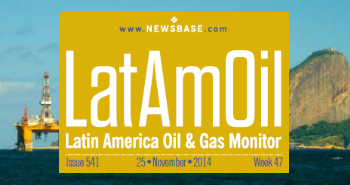Oil industry still waiting to learn outcome of Ecuador’s presidential election
Ecuador is heading for a second round of presidential elections, as none of the contenders secured a majority in the vote held last week. The outcome of the next round is likely to affect the country’s oil policy, especially if the winner is a left-wing candidate.
As of press time, election monitors had identified the top three candidates. They confirmed that left-leaning Andrés Arauz had taken the top spot, winning 32.7% of the vote. At the same time, they were not able to determine whether right-leaning Guillermo Lasso or indigenous activist Yaku Pérez, each of which won nearly 20%, had secured second place.
Pérez, for his part, has demanded a recount, citing Lasso’s narrow 33,000-vote lead and alleging that there had been attempts to stifle indigenous representation. But on February 17, Ecuador’s National Electoral Council suspended its review of around 6mn ballots. Consequently, it is still not clear whether Lasso or Pérez will face Arauz in a run-off election.
Lenin Moreno, the country’s current president, is due to leave office on May 24.
If Lasso turns out to be the eventual victor of the run-off, Ecuador is likely to court international oil companies (IOCs). The conservative candidate, a career banker, has said his government would promote efforts to increase crude production. However, he has also mooted plans for increasing investment in renewable energy and tightening fuel quality standards in order to reduce pollutions.
Pérez, meanwhile, has made his opposition to the oil industry clear. Before running for president, he was an activist for indigenous rights and the protection of water resources. He has consistently opposed mining projects and has called for Ecuador to invest in and make the transition to renewable energy sources.
Arauz’s stance on oil development is more ambiguous. The candidate has spoken extensively about environmental issues, calling for action on issues related to climate change and pollution. However, he is also the protégé of former President Rafael Correa, who was fond of using oil revenues to fund social welfare programmes, and is widely expected to appoint his mentor to serve as his top advisor.
Additionally, Arauz met with Wall Street leaders and representatives of the International Monetary Fund (IMF) during a visit to the US earlier this week. According to Bloomberg, he did so in a bid to reassure investors that his government would not abandon its financial obligations.


Follow us online